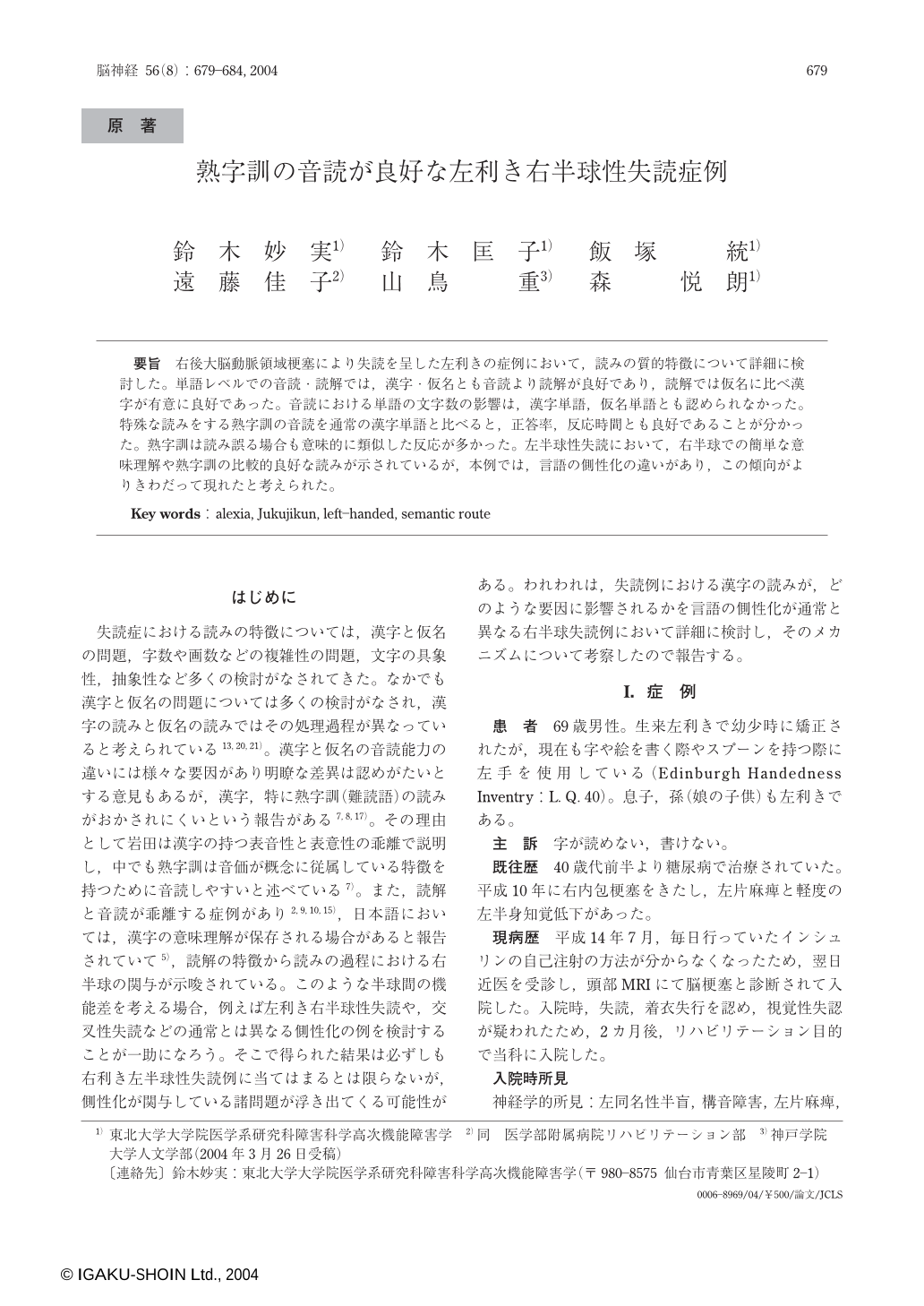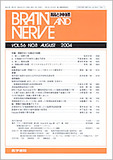Japanese
English
- 有料閲覧
- Abstract 文献概要
- 1ページ目 Look Inside
要旨 右後大脳動脈領域梗塞により失読を呈した左利きの症例において,読みの質的特徴について詳細に検討した。単語レベルでの音読・読解では,漢字・仮名とも音読より読解が良好であり,読解では仮名に比べ漢字が有意に良好であった。音読における単語の文字数の影響は,漢字単語,仮名単語とも認められなかった。特殊な読みをする熟字訓の音読を通常の漢字単語と比べると,正答率,反応時間とも良好であることが分かった。熟字訓は読み誤る場合も意味的に類似した反応が多かった。左半球性失読において,右半球での簡単な意味理解や熟字訓の比較的良好な読みが示されているが,本例では,言語の側性化の違いがあり,この傾向がよりきわだって現れたと考えられた。
We report a 69-year-old left-handed man, who developed alexia after a right medial occipito-temporal lobe infarction. On admission to the rehabilitation department two months after the onset, neurological examination showed left hemianopia, left hemiparesis, decreased deep sensation on the left side, and alexia. A brain MRI demonstrated infarcts in the right medial occipito-temporal lobe and the splenium of the corpus callosum.
Detailed neuropsychological examination was performed two months after the onset. The patient was alert and cooperative. His speech was fluent with some word-finding difficulty. Comprehension for spoken materials, repetition, and naming abilities were all preserved.
Systematic examination for reading revealed that reading aloud was disturbed in both kanji and kana words. Reading comprehension was significantly better for kanji words than kana words. First, we examined the effects of number of characters in a word. The number of characters in a word didn't affect his reading performance. Second, his performance on reading aloud of usual kanji words was compared with that of kanji words representing idioms. A kanji idiom is different from usual kanji words, in which pronunciation of each character is selected from several options. Reading aloud kanji idioms was significantly better than usual kanji words. In addition, reaction time to complete reading a word was much shorter for kanji idioms than usual kanji. An analysis of qualitative features of errors revealed that most errors in kanji idiom reading were semantically similar to the correct answers, while many errors in usual kanji word reading were classified into “don't know” responses.
These findings suggested that a kanji idiom was tightly connected to its pronunciation, which resulted in his much better performance for kanji idiom reading. Overlearning of a unique relationship between a kanji idiom and its pronunciation might modify neuronal organization for reading.
(Received : March 26, 2004)

Copyright © 2004, Igaku-Shoin Ltd. All rights reserved.


